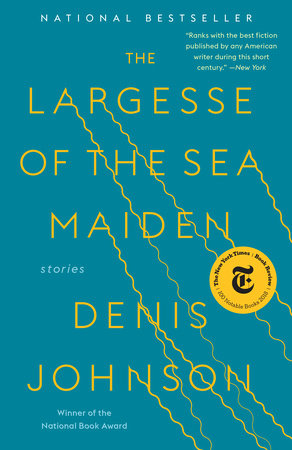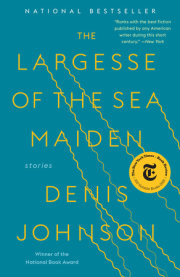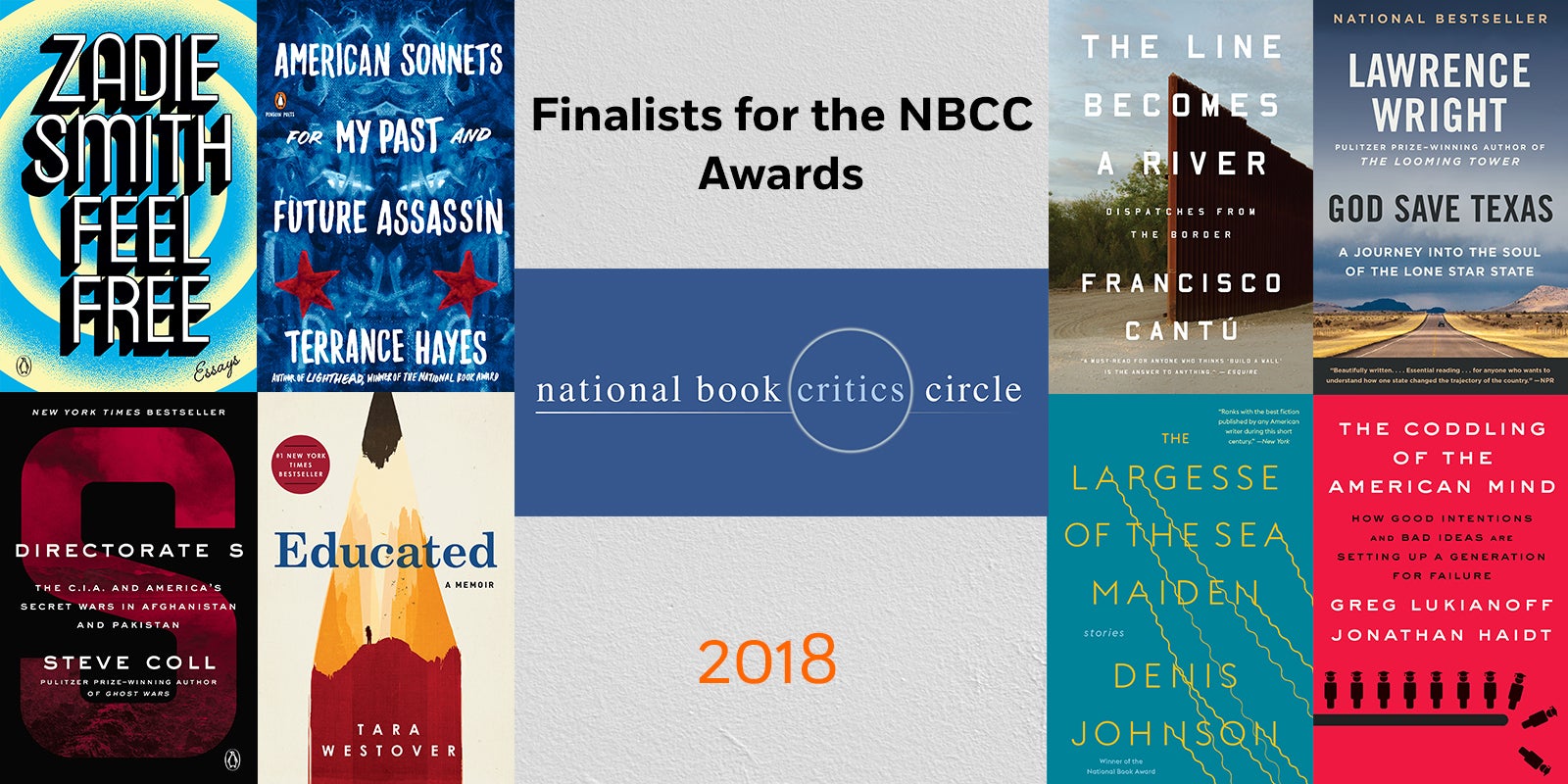Silences
After dinner, nobody went home right away. I think we’d enjoyed the meal so much we hoped Elaine would serve us the whole thing all over again. These were people we’ve gotten to know a little from Elaine’s volunteer work—nobody from my work, nobody from the ad agency. We sat around in the living room describing the loudest sounds we’d ever heard. One said it was his wife’s voice when she told him she didn’t love him anymore and wanted a divorce. Another recalled the pounding of his heart when he suffered a coronary. Tia Jones had become a grandmother at the age of thirty-seven and hoped never again to hear anything so loud as her granddaughter crying in her sixteen-year-old daughter’s arms. Her husband Ralph said it hurt his ears whenever his brother opened his mouth in public, because his brother had Tourette syndrome and erupted with remarks like “I masturbate! Your penis smells good!” in front of perfect strangers on a bus, or during a movie, or even in church.
Young Chris Case reversed the direction and introduced the topic of silences. He said the most silent thing he’d ever heard was the land mine taking off his right leg outside Kabul, Afghanistan.
As for other silences, nobody contributed. In fact, there came a silence now. Some of us hadn’t realized that Chris had lost a leg. He limped, but only slightly. I didn’t even know he’d fought in Afghanistan. “A land mine?” I said.
“Yes, sir. A land mine.”
“Can we see it?” Deirdre said.
“No, ma’am,” Chris said. “I don’t carry land mines around on my person.”
“No! I mean your leg.”
“It was blown off.”
“I mean the part that’s still there!”
“I’ll show you,” he said, “if you kiss it.”
Shocked laughter. We started talking about the most ridiculous things we’d ever kissed. Nothing of interest. We’d all kissed only people, and only in the usual places. “All right, then,” Chris told Deirdre, “here’s your chance for the conversation’s most unique entry.”
“No, I don’t want to kiss your leg!”
Although none of us showed it, I think we all felt a little irritated with Deirdre. We all wanted to see.
Morton Sands was there too that night, and for the most part he’d managed to keep quiet. Now he said, “Jesus Christ, Deirdre.”
“Oh, well. Okay,” she said.
Chris pulled up his right pant leg, bunching the cuff about halfway up his thigh, and detached his prosthesis, a device of chromium bars and plastic belts strapped to his knee, which was intact and swiveled upward horribly to present the puckered end of his leg. Deirdre got down on her bare knees before him, and he hitched forward in his seat—the couch, Ralph Jones was sitting beside him—to move the scarred stump within two inches of Deirdre’s face. Now she started to cry. Now we were all embarrassed, a little ashamed.
For nearly a minute, we waited.
Then Ralph Jones said, “Chris, I remember when I saw you fight two guys at once outside the Aces Tavern. No kidding,” Jones told the rest of us, “he went outside with these two guys and beat the crap out of both of them.”
“I guess I could’ve given them a break,” Chris said. “They were both pretty drunk.”
“Chris, you sure kicked some ass that night.”
In the pocket of my shirt I had a wonderful Cuban cigar. I wanted to step outside with it. The dinner had been one of our best, and I wanted to top off the experience with a satisfying smoke. But you want to see how this sort of thing turns out. How often will you witness a woman kissing an amputation? Jones, however, had ruined everything by talking. He’d broken the spell. Chris worked the prosthesis back into place and tightened the straps and rearranged his pant leg. Deirdre stood up and wiped her eyes and smoothed her skirt and took her seat, and that was that. The outcome of all this was that Chris and Deirdre, about six months later, down at the courthouse, in the presence of very nearly the same group of friends, were married by a magistrate. Yes, they’re husband and wife. You and I know what goes on.
Accomplices
Another silence comes to mind. A couple of years ago Elaine and I had dinner at the home of Miller Thomas, formerly the head of my agency in Manhattan. Right—he and his wife Francesca ended up out here too, but considerably later than Elaine and I—once my boss, now a San Diego retiree. We finished two bottles of wine with dinner, maybe three bottles. After dinner we had brandy. Before dinner we had cocktails. We didn’t know each other particularly well, and maybe we used the liquor to rush past that fact. After the brandy I started drinking scotch, and Miller drank bourbon, and, although the weather was warm enough that the central air conditioner was running, he pronounced it a cold night and lit a fire in his fireplace. It took only a squirt of fluid and the pop of a match to get an armload of sticks crackling and blazing, and then he laid on a couple of large chunks he said were good, seasoned oak. “The capitalist at his forge,” Francesca said.
At one point we were standing in the light of the flames, I and Miller Thomas, seeing how many books each man could balance on his outflung arms, Elaine and Francesca loading them onto our hands in a test of equilibrium which both of us failed repeatedly. It became a test of strength. I don’t know who won. We called for more and more books, and our women piled them on until most of Miller’s library lay around us on the floor. He had a small Marsden Hartley canvas mounted above the mantel, a crazy, mostly blue landscape done in oil, and I said that perhaps that wasn’t the place for a painting like this one, so near the smoke and heat, such an expensive painting. And the painting was masterly, too, from what I could see of it by dim lamps and firelight, amid books scattered all over the floor . . . Miller took offense. He said he’d paid for this masterpiece, he owned it, he could put it where it suited him. He moved very near the flames and took down the painting and turned to us holding it before him and declared that he could even, if he wanted, throw it in the fire and leave it there. “Is it art? Sure. But listen,” he said, “art doesn’t own it. My name ain’t Art.” He held the canvas flat like a tray, landscape up, and tempted the flames with it, thrusting it in and out . . . And the strange thing is that I’d heard a nearly identical story about Miller Thomas and his beloved Hartley landscape some years before, about an evening very similar to this one, the drinks and wine and brandy and more drinks, the rowdy conversation, the scattering of books, and finally Miller thrusting this painting toward the flames and calling it his own property and threatening to burn it. On that previous night his guests had talked him down from the heights, and he’d hung the painting back in its place, but on our night—why?—none of us found a way to object as he added his property to the fuel and turned his back and walked away. A black spot appeared on the canvas and spread out in a sort of smoking puddle that gave rise to tiny flames. Miller sat in a chair across the living room, by the flickering window, and observed from that distance with a drink in his hand. Not a word, not a move, from any of us. The wooden frame popped marvelously in the silence while the great painting cooked away, first black and twisted, soon gray and fluttering, and then the fire had it all.
Ad Man
This morning I was assailed by such sadness at the velocity of life—the distance I’ve traveled from my own youth, the persistence of the old regrets, the new regrets, the ability of failure to freshen itself in novel forms—that I almost crashed the car. Getting out at the place where I do the job I don’t feel I’m very good at, I grabbed my briefcase too roughly and dumped half of its contents in my lap and half in the parking lot, and while gathering it all up I left my keys on the seat and locked the car manually—an old man’s habit—and trapped them in the RAV.
In the office, I asked Shylene to call a locksmith and then get me an appointment with my back-man.
In the upper right quadrant of my back I have a nerve that once in a while gets pinched. The T4 nerve. These nerves aren’t frail little ink lines; they’re cords as thick as your pinky finger. This one gets caught between tense muscles, and for days, even for weeks, there’s not much to be done but take aspirins and get massages and visit the chiropractor. Down my right arm I feel a tingling, a numbness, sometimes a dull, sort of muffled torment, or else a shapeless, confusing pain.
It’s a signal: it happens when I’m anxious about something.
To my surprise, Shylene knew all about this something. Apparently she finds time to be Googling her bosses, and she’d learned of an award I was about to receive in, of all places, New York—for an animated television commercial. The award goes to my old New York team, but I was the only one of us attending the ceremony, possibly the only one interested, so many years down the line. This little gesture of acknowledgment put the finishing touches on a depressing picture. The people on my team had gone on to other teams, fancier agencies, higher accomplishments. All I’d done in better than two decades was to tread forward until I reached the limit of certain assumptions, and step off. Meanwhile, Shylene was oohing, gushing, like a proud nurse who expects you to marvel at all the unholy procedures the hospital has in store for you. I said to her, “Thanks, thanks.”
When I entered the reception area, and throughout this transaction, Shylene wore a flashy sequined carnival masque. I didn’t ask why.
Our office environment is part of the new wave. The whole agency works under one gigantic big top like a circus—not crowded, quite congenial, all of it surrounding a spacious break-time area with pinball machines and a basketball hoop, and every Friday during the summer months we have a Happy Hour with free beer from a keg.
In New York I made commercials. In San Diego I write and design glossy brochures, mostly for a group of western resorts where golf is played and horses take you along bridle paths. Don’t get me wrong—California’s full of beautiful spots; it’s a pleasure to bring them to the attention of people who might enjoy them. Just, please, not with a badly pinched nerve.
When I can’t stand it I take the day off and visit the big art museum in Balboa Park. Today, after the locksmith got me back in my car, I drove to the museum and sat in on part of a lecture in one of its side-rooms, a woman Outsider artist raving, “Art is man and man is art!” I listened for five minutes, and what little of it she managed to make comprehensible didn’t even merit being called shallow. Just the same, her paintings were slyly designed, intricately patterned, and coherent. I wandered from wall to wall, taking some of it in, not much. But looking at art for an hour or so always changes the way I see things afterward—this day, for instance, a group of mentally handicapped adults on a tour of the place with their twisted, hovering hands and cocked heads, moving among the works like cheap cinema zombies, but good zombies, zombies with minds and souls and things to keep them interested. And outside, where they normally have a lot of large metal sculptures, the grounds were being dug up and reconstructed—a dragline shovel nosing the rubble monstrously, and a woman and child watching, motionless, the little boy standing on a bench with his smile and sideways eyes and his mother beside him, holding his hand, both so still, like a photograph of American ruin.
Next I had a session with a chiropractor dressed up as an elf.
It seemed the entire staff at the medical complex near my house were costumed for Halloween, and while I waited out front in the car for my appointment, the earliest one I could get that day, I saw a Swiss milkmaid coming back from lunch, then a witch with a green face, then a sunburst-orange superhero. Then I had the session with the chiropractor in his tights and drooping cap.
As for me? My usual guise. The masquerade continues.
Farewell
Elaine got a wall phone for the kitchen, a sleek blue one that wears its receiver like a hat, with a caller ID readout on its face just below the keypad. While I eyeballed this instrument, having just come in from my visit with the chiropractor, a brisk, modest tone began, and the tiny screen showed ten digits I didn’t recognize. My inclination was to scorn it like any other unknown. But this was the first call, the inaugural message.
As soon as I touched the receiver I wondered if I’d regret this, if I was holding a mistake in my hand, if I was pulling this mistake to my head and saying “Hello” to it.
The caller was my first wife, Virginia, or Ginny, as I’d always called her. We’d been married long ago, in our early twenties, and put a stop to it after three crazy years. Since then we hadn’t spoken, we’d had no reason to, but now we had one. Ginny was dying.
Her voice came faintly. She told me the doctors had closed the book on her, she’d ordered her affairs, the good people from hospice were in attendance.
Before she ended this earthly transit, as she called it, Ginny wanted to shed any kind of bitterness against certain people, certain men, especially me. She said how much she’d been hurt, and how badly she wanted to forgive me, but she didn’t know whether she could or not—she hoped she could—and I assured her, from the abyss of a broken heart, that I hoped so too, that I hated my infidelities and my lies about the money, and the way I’d kept my boredom secret, and my secrets in general, and Ginny and I talked, after forty years of silence, about the many other ways I’d stolen her right to the truth.
Copyright © 2018 by Denis Johnson. All rights reserved. No part of this excerpt may be reproduced or reprinted without permission in writing from the publisher.










